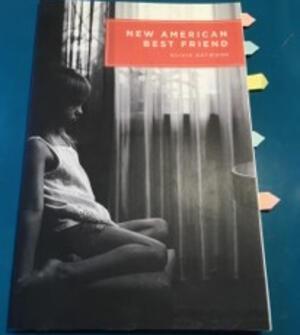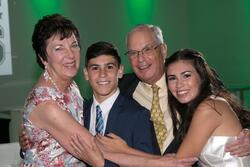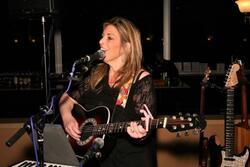Ode to Slam Poetry
I’ve always been in love with words. As long as I can remember, I’ve read everything and anything I could get my hands on. My love for stories turned me into a storyteller. However, my writing used to always be about hypotheticals and was firmly entrenched in the fiction genre. My protagonists tended to be straight, white, Christian people, because they’re mostly who you see in literature.
My characters lived through made-up problems in made-up worlds, and their experiences were simply what I thought people might be interested in reading; they had nothing to do with my real-life experiences. I just figured that documenting my own experiences and opinions would be a waste of time.
Then, when I was 13 I discovered YouTube videos of slam poetry. I loved it because the poets were talking unapologetically about their own life experiences, and beliefs. My favorite poet Olivia Gatwood’s poems span both her reaction to social issues, such as in “Manic Pixie Dream Girl,” and her own personal experiences, like in “Ode to Elise in Eighth Grade Health Class.”
For me, there is a clear connection between slam poetry and feminism. Women in our society are supposed to be quiet and un-opinionated, but slam poetry lets women counter these expectations, and empowers them in a unique way. Slam poetry allows women to talk about things we’re discouraged from speaking about: rape and rape culture, emotional labor, body image and makeup culture, female sexuality, and what it means to be a woman who exists at the intersection of different identities. Slam poetry provides an outlet through which women can speak up, and speak out.
Another thing I appreciate so much about slam poetry is that, through it, I’ve learned a lot about a variety of social issues from people whose voices we don’t usually hear; for example: queer people, people of color, and those who suffer from mental illness. It’s important to hear from these voices because they can either expose us to new perspectives or validate those of us in need of the representation often lacking in pop culture.
Perhaps most importantly for me personally, slam poetry has made me realize that my own thoughts, experiences, and opinions are worth sharing.
My writing started to reflect this. My characters became more like me, and more like the people I know. Their experiences began to resemble mine more as I talked about subjects that personally interested me. And, particularly as I began high school, I started moving away from fiction as I tried other kinds of writing: journaling, my own (terrible) poetry, and blog posts. I started to write about things that happened to me in my own life, and I started to write about my opinions on a variety of real and pressing issues.
I’ve started to see writing not just as something I love to do, but as a way to process the world around me from my own perspective, and to help others do the same. Writing is the best way I know to work through my struggles and questions when it comes to things like complicated Torah portions, or feminism, or politics. Through my writing, I’ve been able to explore aspects of myself that our society doesn’t always want young women to speak up about.
Slam poetry has shaped my own writing, and has helped me value my own experiences. While slam poetry isn’t my chosen medium, it inspires me; and, in my own writing (like in my blog posts), I try to emulate the slam poetry style of sharing my thoughts in a way that is impactful but also compelling and enjoyable. As a young Jewish feminist with a lot of thoughts and opinions, I don’t read a lot of writing that I see myself in, so it’s especially meaningful to me that I can share my thoughts and experiences through writing of my own. I write because I love to write, but it was slam poets who empowered me to write personally, and I’ll always be grateful for that.
This piece was written as part of JWA’s Rising Voices Fellowship.








Love this, Josie!!